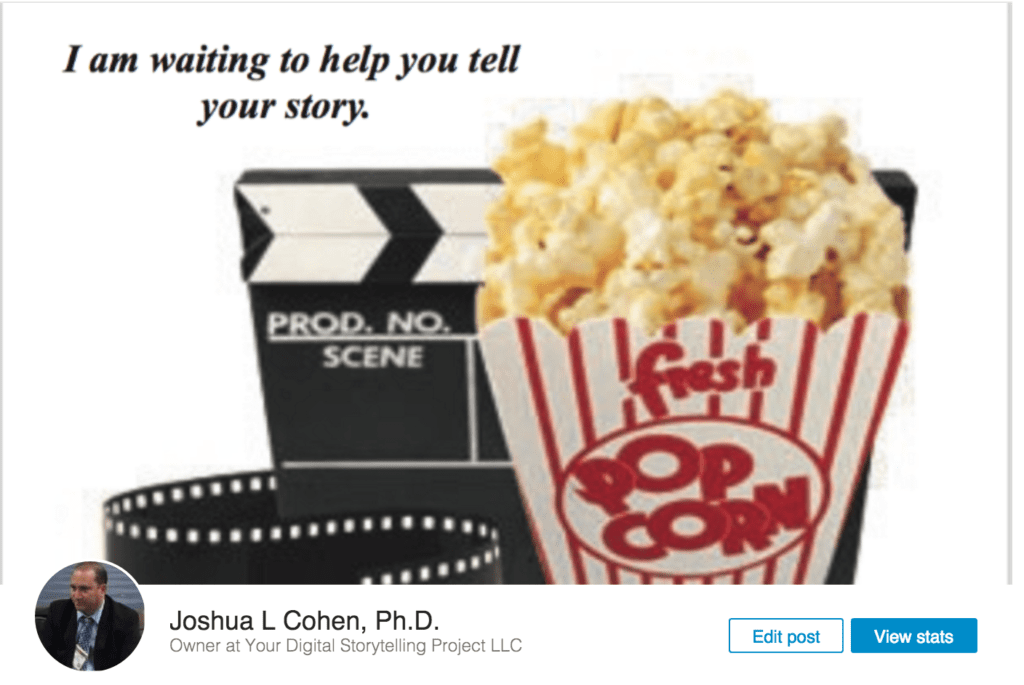
On February 24th, 2016, Your Digital Storytelling Project LLC hosted a free live event to introduce itself to the Long Beach community. We showed movie clips for educational purposes and served popcorn. The topic of discussion was about healthy relationships. The meeting took place at 7:15pm at the office. For further information please contact the following address or call or email.
2436 E. 4th St #10
Long Beach, CA 90814
(213)267-2416
email drjoshcohen@filmandvideobasedtherapy.com
Professional Experience
The event was hosted by Dr. Josh Cohen, author and co-editor of video and filmmaking as psychotherapy:research and practice.
to learn more about the book visit the following link
He was joined by Dr. Natalie Feinblatt who is a licensed clinical psychologist.
Kim Anderson’s book on family violence
Kim M. Anderson, UCF Professor in the School of Social Work and Public Affairs Doctoral Program, focuses on trauma recovery and resilience in populations impacted by violence. For 25 years she has practiced and conducted research in the trauma field. Her book Enhancing Resilience in Survivors of Family Violence (Anderson, 2010), provides empirical findings and conceptual insights for professionals to assist people affected by violence and oppression to cultivate their strengths and resilient capacities. The book’s findings are being used in training and in the Ohio Domestic Violence Network’s on-line manual: Trauma-Informed Care: Best Practices and Protocols for Ohio’s Domestic Violence Programs, Second Edition, 2013. Dr. Anderson trains school personnel on CBITS (group intervention) and mental health professionals on TF-CBT (child-parent intervention). Cognitive Behavioral Intervention for Trauma in Schools (CBITS) and Trauma-Focused Cognitive-Behavioral Therapy (TF-CBT) are evidence-based interventions for youth with emotional and behavioral difficulties associated with violence exposure and trauma. In addition, Dr. Anderson has created a digital story curriculum for youth and adults impacted by violence and trained staff on this innovative narrative method. DS empowers individuals to address difficult experiences in a deliberate manner while giving them creative control and a variety of ways to tell the story. Such processing allows individuals to elaborate and organize their trauma memories while tolerating negative emotions associated with it.
